by Audrey Sage
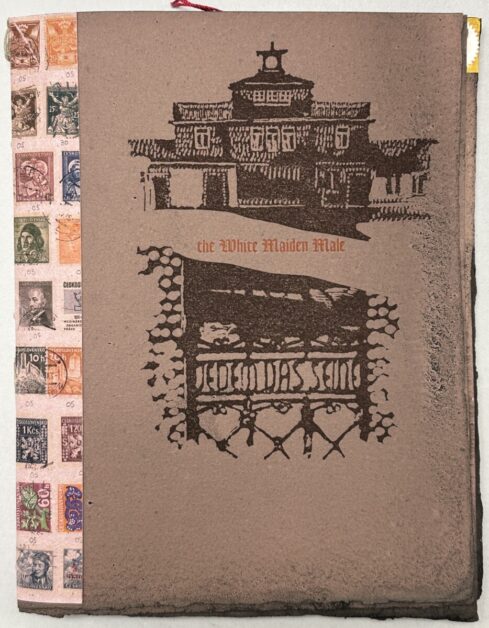
sailorBOYpress, 2012, Copy 6 from an edition of 50.
11 x 9″; 28 pages. Letterpress printed with Plantin type. Printed on Barcham Green and other handmade papers. Sewn binding with matching paper covers. In 11.75 x 9″ lidded aluminum box with embossed titles. Signed and dated by artist.
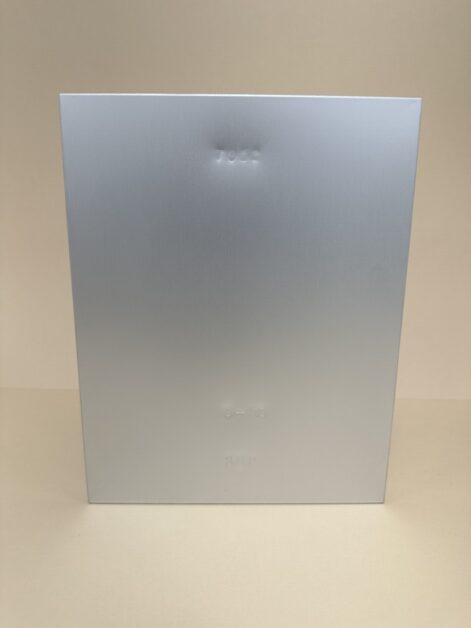
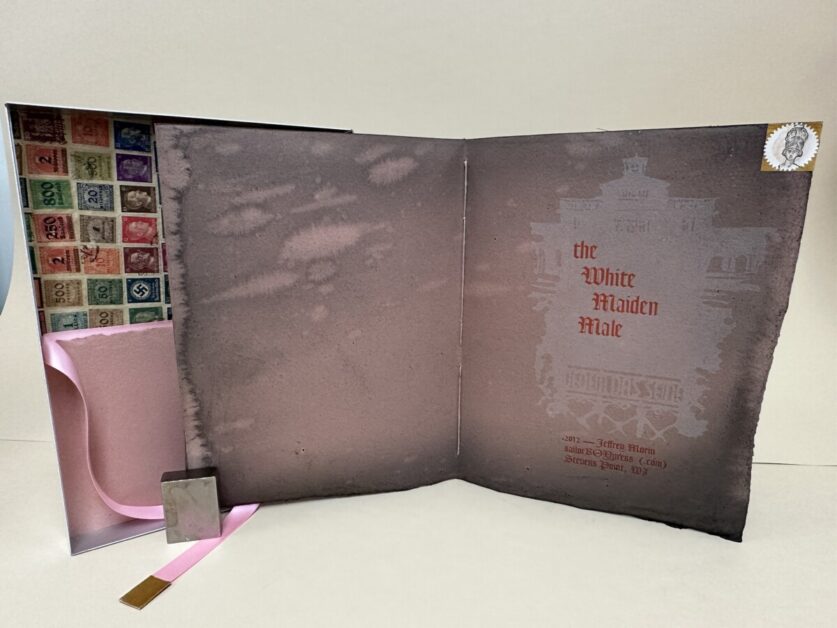
Jeff Morin, Colophon: “The White Maiden is the tale of a hunter who wishes for the ancient wines of the cellars at Thurnberg in a moment of great thirst. His wish is granted by the White Maiden but, as a result of drinking his wine, she forever plagues him with a sense of wanting, an inability to take satisfaction in anything. He sees her in everything and everyone. his life is spent in pursuit of her. Historically, the term ‘maiden’ is gender neutral and simply means one whose virginity is intact. Happiness becomes as elusive to Brazda, who finds his maiden and loses him. His life becomes an unending search for his maiden and his world unleashes a curse that attempts to rob him of any pleasure or sense of being quenched.
Rudolph Brazda found his Maiden when working as a roofer and spotting Werner on the street below. “In the last days of the Weimar Republic, they lived openly together in the home of a Jehovah’s Witness. And Werner brought Rudolph wine whenever he wished for it.” After they each felt compelled to enlist in military service, and being in the “wrong places at the wrong times” they were each arrested for violating Paragraph 175, “which made homosexual acts between men a crime. Between 1871 and 1994, some thousands upon thousands would become marked. Werner disappeared to Rudolph after they were tried and sentenced. They lost one another in the process. Werner died on the French front circled by uniformed men.”
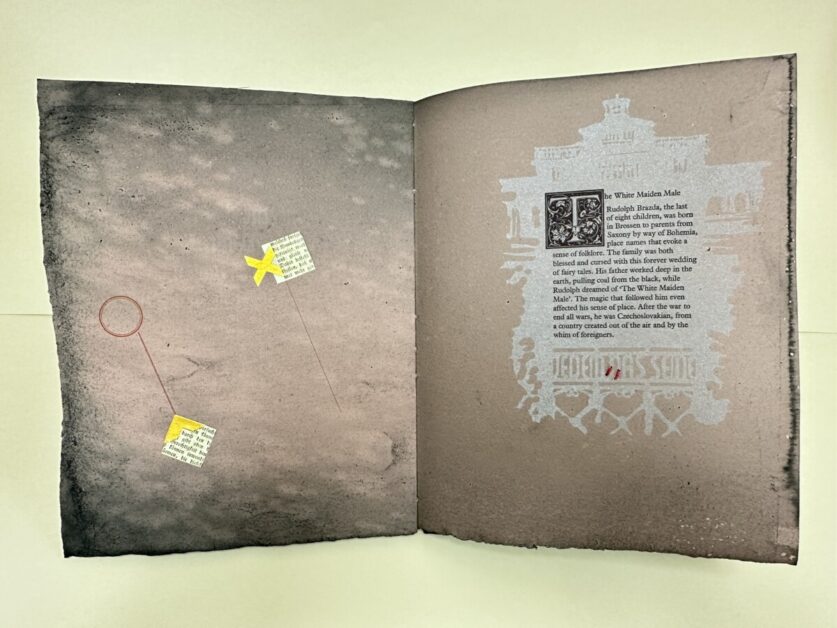
“As the fairytale unfolds, Rudolph moves on and, even when he stays put, the city and country names change. He finds a new white maiden in Anton. He returns to the roofing trade. He is rearrested. He is deported to the Buchenwald concentration camp. His name, like the countries and cities around him, is changed. From August of 1942 he is prisoner number 7952.”
After surviving the war and the Buchenwald concentration camp, prisoner number 7952 is given back his name – Joseph Brazda. After liberation, he and another prison survivor, Fernand, felt bound together and moved to Mulhouse and began working again as a roofers. By the 1950’s, Rudolph found his Maiden, Edi, with whom he built a home together and lived for the next several decades.
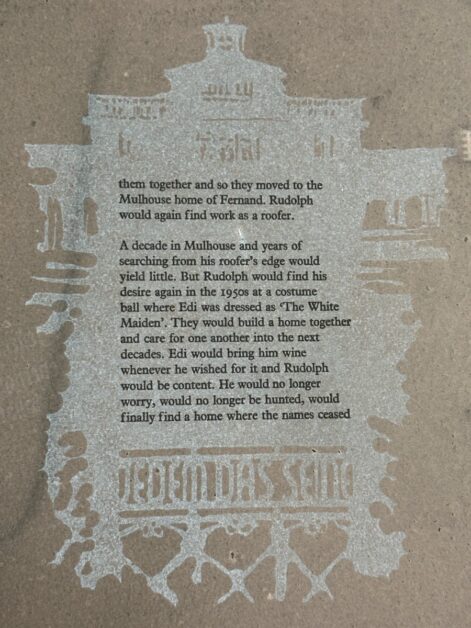
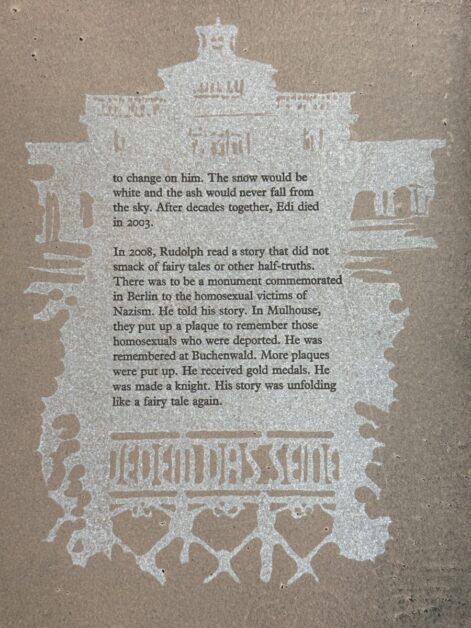
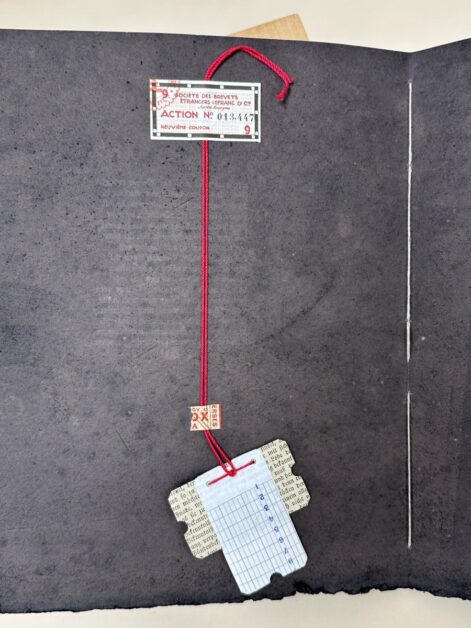
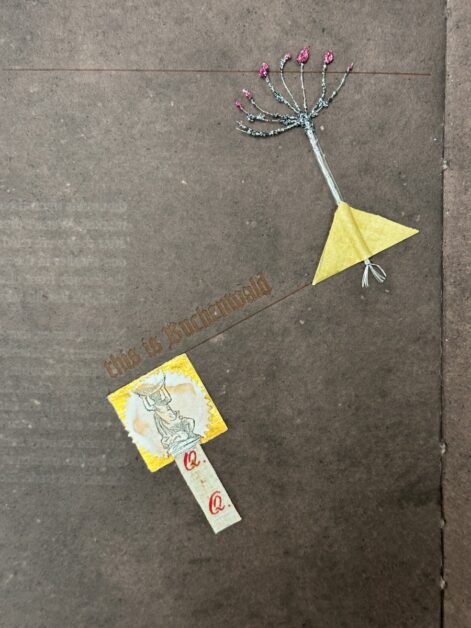
“There was to be a monument commemorated in Berlin to the homosexual victims of Nazism. He told his story. In Mulhouse, they put up a plaque to remember those homosexuals who were deported. He was remembered at Buchenwald. More plaques were put up. He received gold medals. He was made a knight. His story was unfolding like a fairy tale again. Rudolph Brazda died on August 3, 2011.”
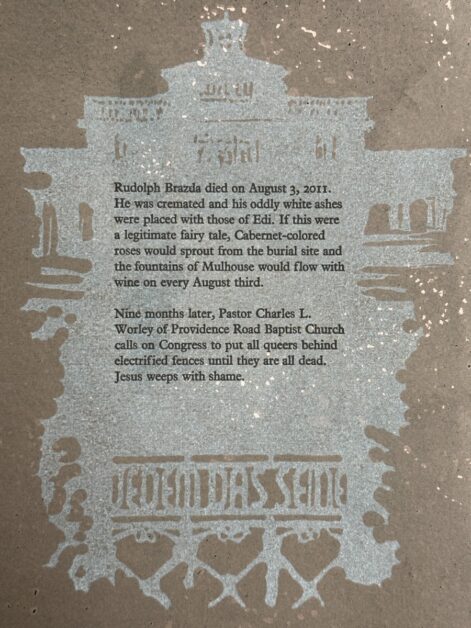
“Sitting in a hospital waiting room, I reached for a Time magazine, only to discover Rudolph Brazda through his obituary. I have chosen to weave the true-life story of Brazda with the German folktale of ‘The White Maiden.’ In a recorded interview, Brazda delivers a frank and rather clipped recounting of the horrific acts swirling around his early life. He makes simple, declarative statements that should boggle the soul and cause us to weep. He was perhaps the last person alive to have worn the pink triangle as a Nazi concentration camp detainee.” – Jeffrey Morin